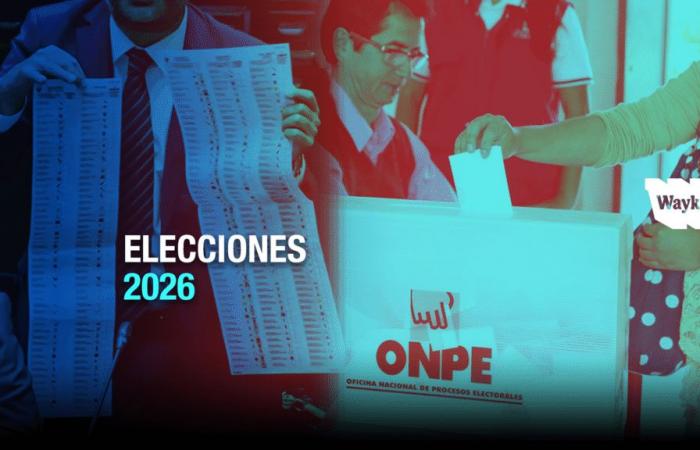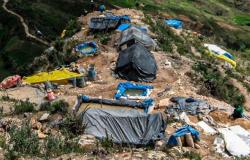In the Andean country a record of partisan fractionation has been formalized. In total, 43 political parties were enabled to apply for the presidency in the next elections.
Ricardo Monzón/Latin America21
The most unusual and unique presidential election of the world will occur in April next year. It will not be in a remote nation of unpronounceable name. It will be just here, in the middle of the always unequal and picturesque Latin America, in Peru.
In mid -April, the National Jury of Elections (JNE) of Peru, the highest electoral body of the Andean country, confirmed that there will be 43 the political parties authorized to participate in the general elections of 2026, after exceeding the requirements established for its validation. By law, everyone is obliged to enter Lid, otherwise they will lose their registration, which, in good Christian, will lead to its extinction.
This means that next year, the more than 27 million Peruvian citizens of legal age would attend the polls to choose a presidential candidate between 43. They will also have to choose candidates for the Andean Parliament and for the Bicameral Congress, among the same amount of political groups. A logistics madness that will lead to greater confusion of the electorate.
The initial projections indicate that citizens will receive a voting card of approximately 65 centimeters long, the size of a 50 -inch television. Even, even, by the political party of Nicanor Boluarte, the brother of the president of Peru, Dina Boluarte. Demanding neutrality seems difficult.
The record of fractionation in the country has a marked genesis: in December 2023, the Peruvian Congress eliminated the pass Internal backup.
-The parties will now have the possibility of choosing once again the form of choice of their representatives in internal elections. It is more than sure that they will choose to give the power of designation to a group of delegates placed by the party dome. A form of internal democracy nothing democratic, is worth precision.
In 2026, Peru will also mark a milestone in the region by contemplating 43 presidential candidates. To give an example, in 2023 Argentina celebrated the elections that culminated with Javier Milei in the Casa Rosada with 5 participating candidates, filtered by the step established in 2009.
In the last presidential campaign in Ecuador, which concluded with Daniel Noboa re -elected to occupy four more years the Carondelet Palace, 25 political parties were presented in the first round. A high figure, but that does not even approach the Peruvian.
Mexico chose Claudia Sheinbaum in 2024 among three candidates, Chile opted for Gabriel Boric in 2021 among seven applicants and Colombia did the same in 2022 in favor of Gustavo Petro considering four candidates for the presidency.
In addition to the chaos that means reviewing in detail the resumes and proposals of the candidates, the large number of Peruvian parties in the contest will make candidates on the second round with a tiny percentage of valid votes, close to 8% or 10%, endangering the representativeness and governance of the new head of state.
But as in every gloom, there is a light at the end of the tunnel: electoral alliances. Promoted emergency measures by the Peruvian Congress have established the promotion to form coalitions and reduce the number of parties.
Convened the electoral process, conversations will begin. How many alliances will be established? Can the scandalous number of enabled matches decrease considerably? Everything is to be seen … but what is certain is that the shell games or the rental of rent, which are offered to the highest bidder, will fish again to the scrambled river.






